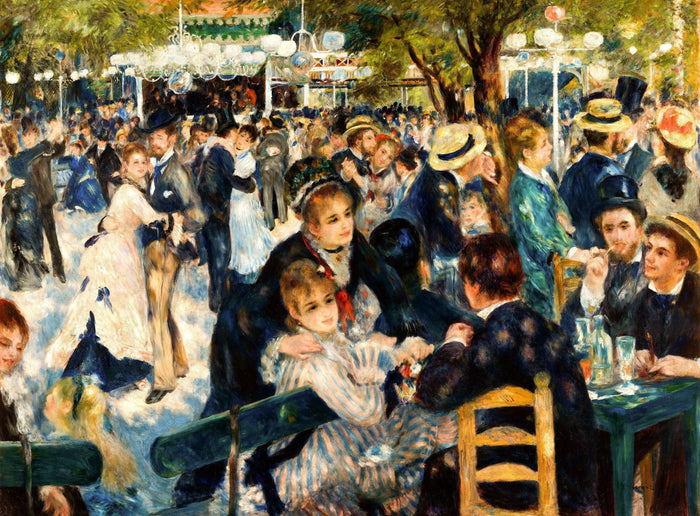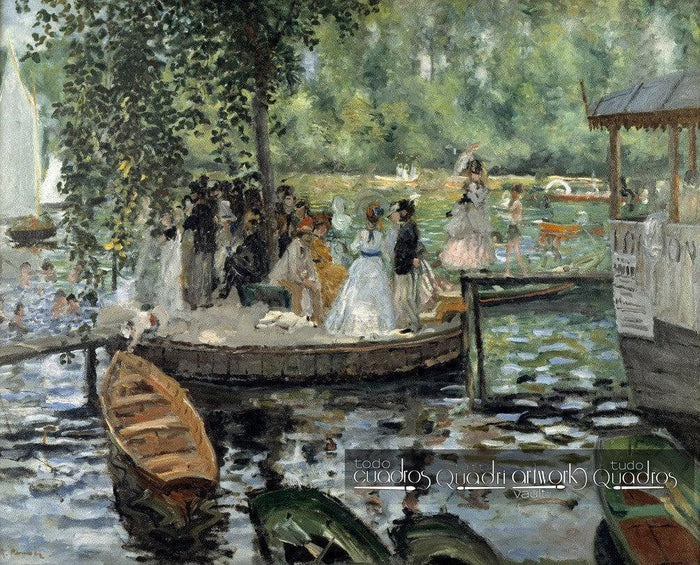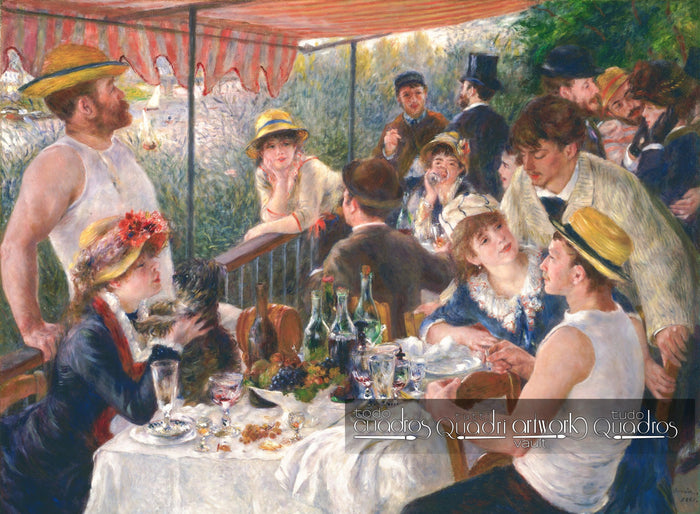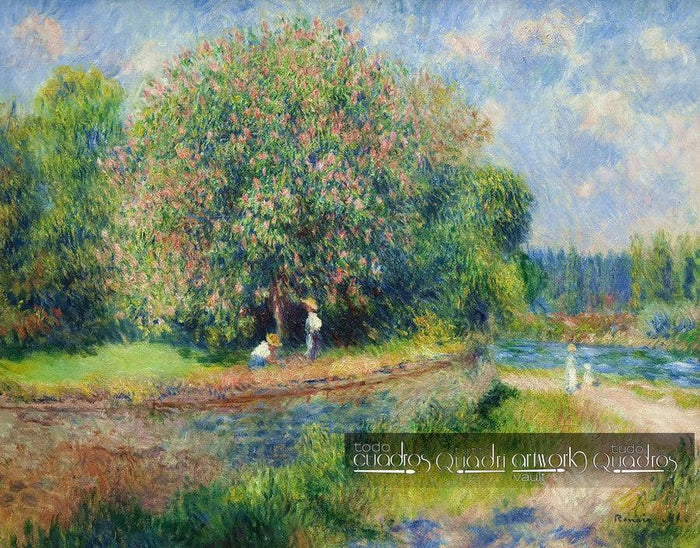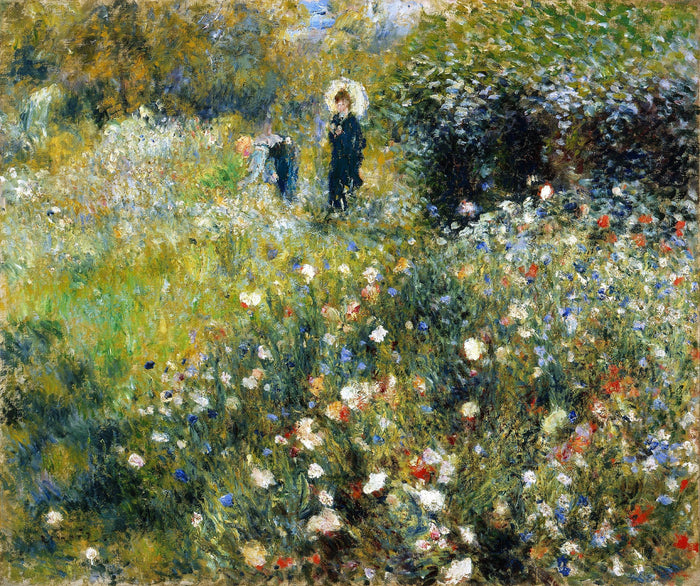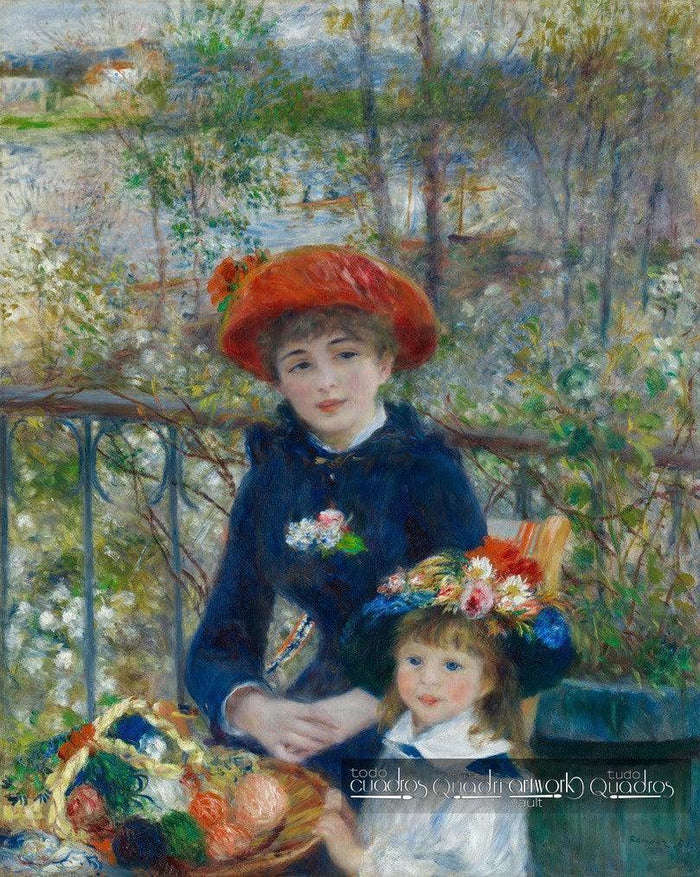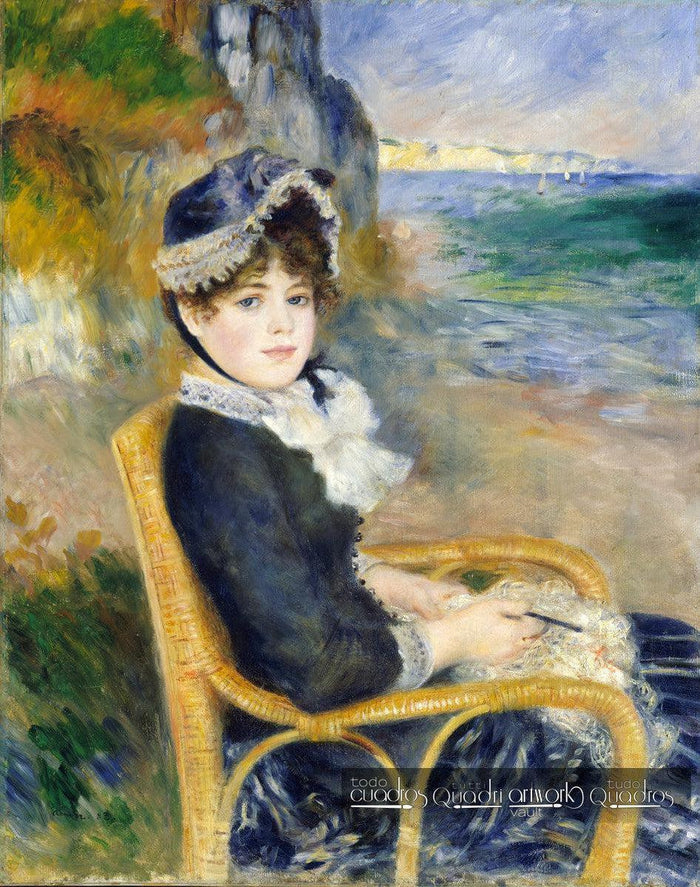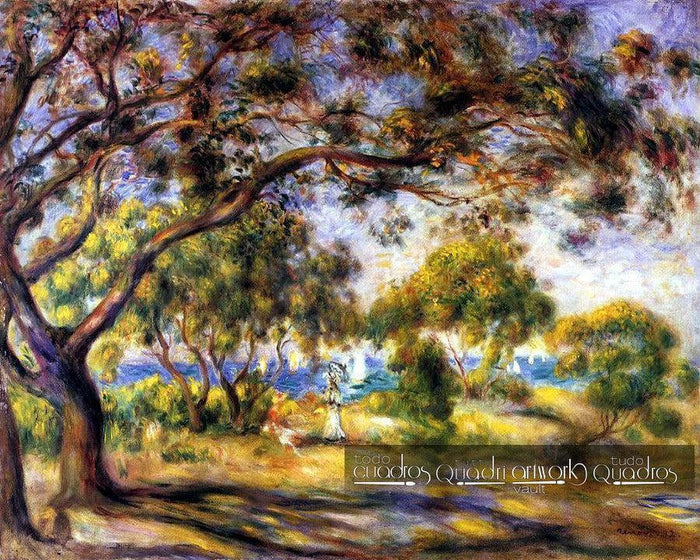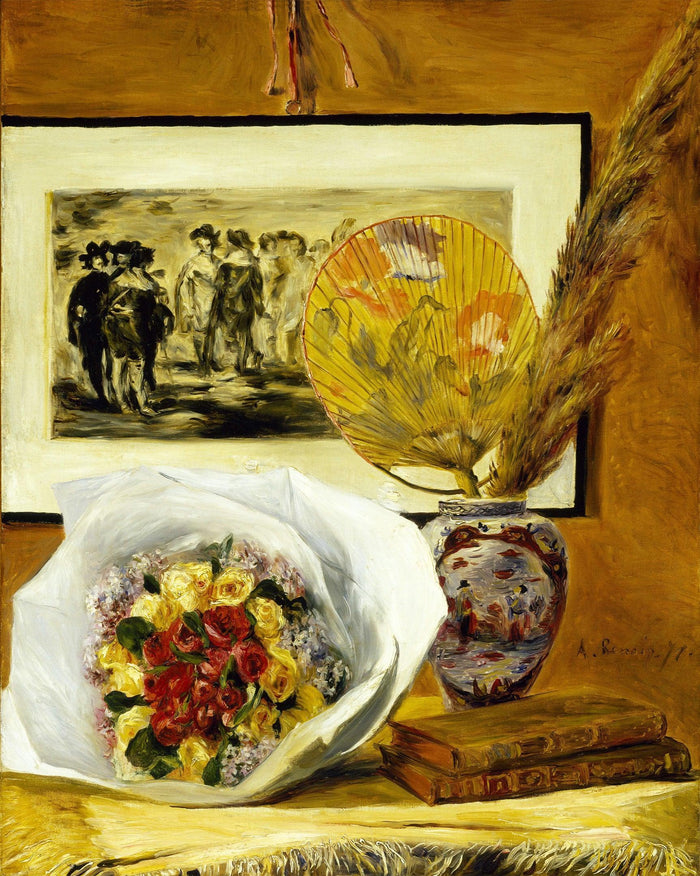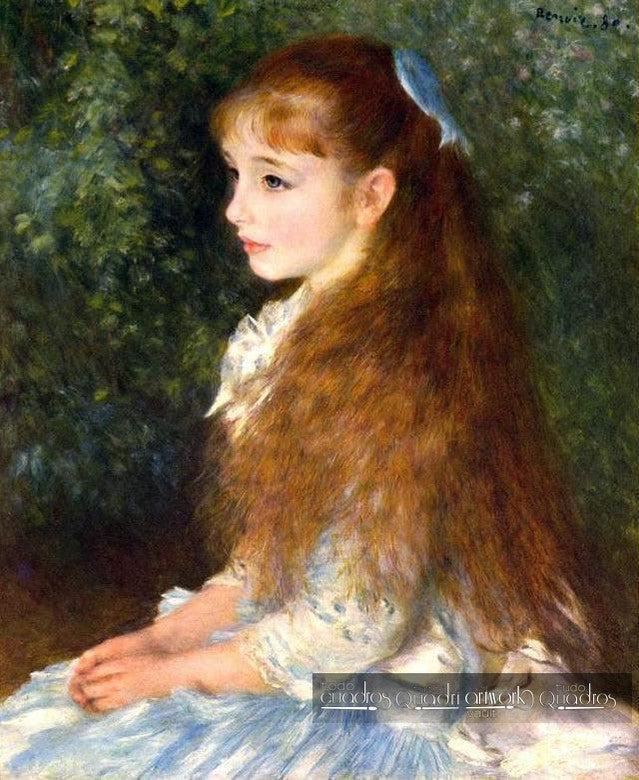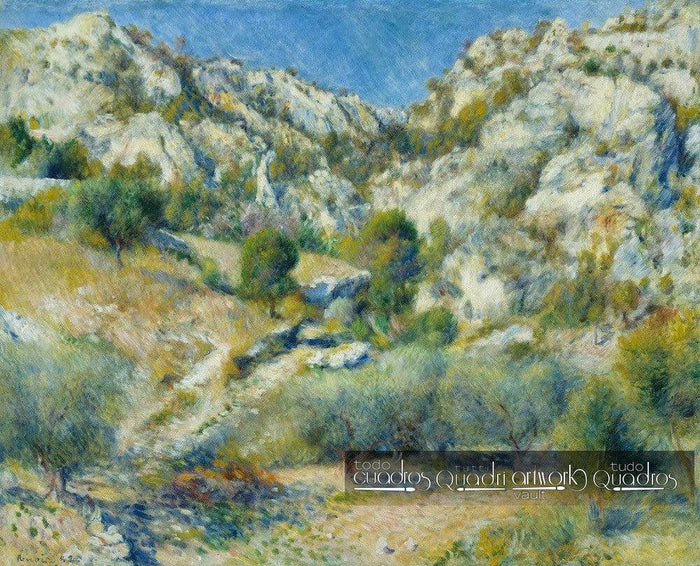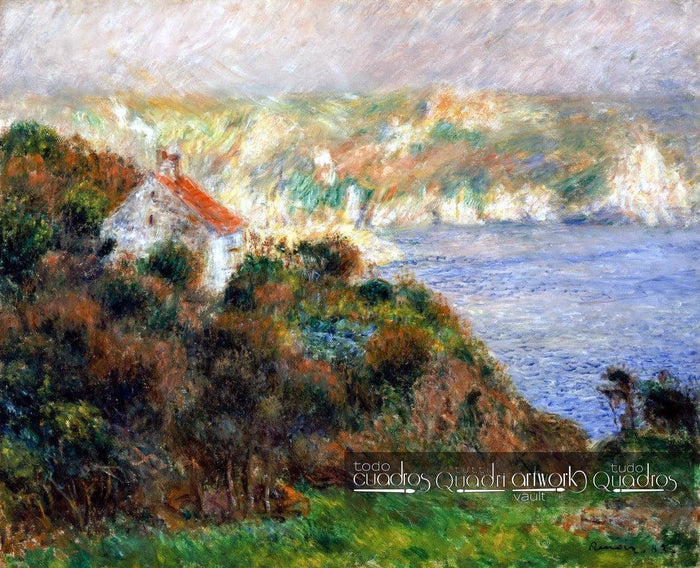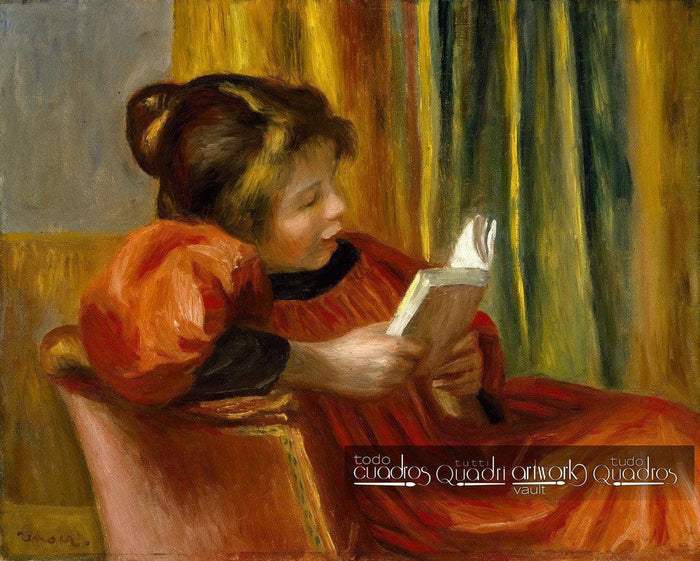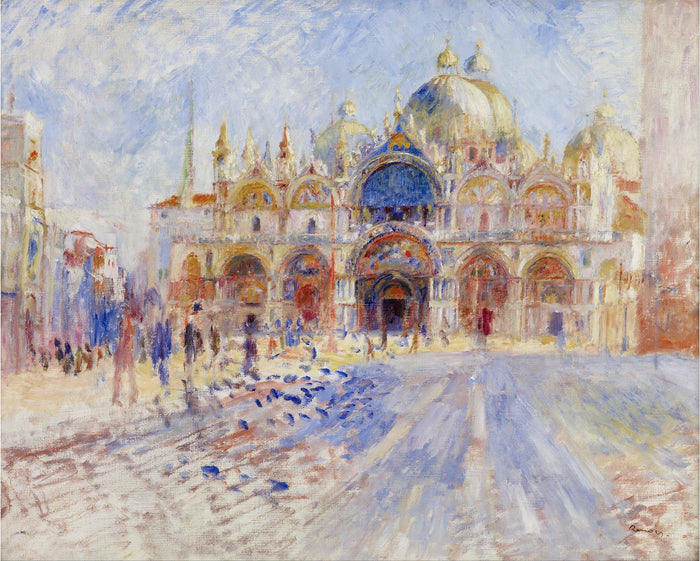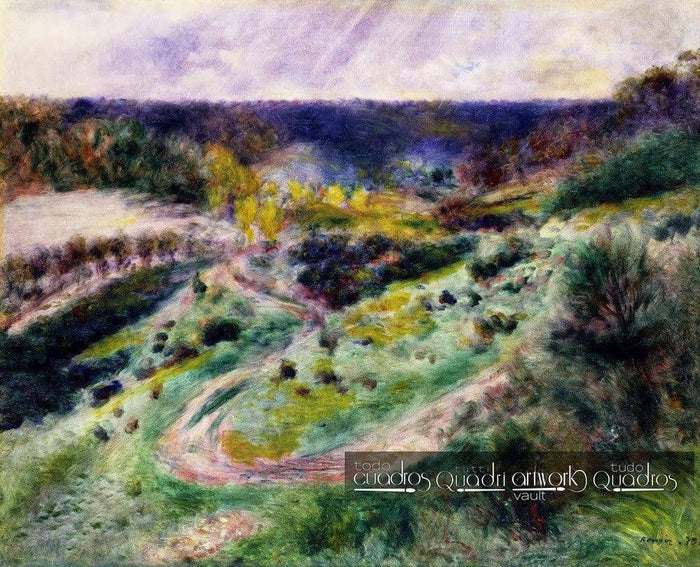Renoir Paintings
1. Dance at Le Moulin de la Galette
| Author: | Pierre Auguste Renoir |
|---|---|
| Original Title: | Bal du moulin de la Galette |
| Type: | Painting |
| Style: | Impressionism |
| Medium | Oil |
| Support: | Canvas |
| Year: | 1876 |
| Genre: | Costumbrism |
| Located: | Orsay Museum, París. |
2. La Grenouillère
| Author: | Pierre Auguste Renoir |
|---|---|
| Original Title: | La Grenouillère |
| Type: | Painting |
| Style: | Impressionism |
| Medium | Oil |
| Support: | Canvas |
| Year: | 1879 |
| Subject: | Nature |
| Located: | Nationalmuseum of Stockholm, Sweden |
3. Luncheon of the Boating Party
| Author: | Pierre Auguste Renoir |
|---|---|
| Original Title: | Le Déjeuner des canotiers |
| Type: | Painting |
| Style: | Impressionism |
| Medium | Oil |
| Support: | Canvas |
| Year: | 1880-81 |
| Genre: | Costumbrism |
| Located: | Phillips Collection, Washington, EE. UU. |
4. Chestnut Tree in Bloom
| Author: | Pierre Auguste Renoir |
|---|---|
| Original Title: | Le marronnier en fleurs |
| Type: | Painting |
| Style: | Impressionism |
| Medium | Oil |
| Support: | Canvas |
| Year: | 1881 |
| Genre: | Landscape |
| Located: | Alte Nationalgalerie, Berlin |
Peasants and blooming chestnut trees in the French countryside in spring.
5. Two Young Girls at the Piano
| Author: | Pierre Auguste Renoir |
|---|---|
| Type: | Painting |
| Style: | Impressionism |
| Medium | Oil |
| Support: | Canvas |
| Year: | 1892 |
| Genre: | Retrato |
| Located: | Museum MET, New York. |
6. Woman with a Parasol in a Garden
| Author: | Pierre Auguste Renoir |
|---|---|
| Original Title: | Femme à l'ombrelle dans un jardin |
| Type: | Painting |
| Style: | Impressionism |
| Medium | Oil |
| Support: | Canvas |
| Year: | 1873-1875 |
| Subject: | Nature |
| Located: | Thyssen Museum, Madrid. |
To create this work, the artist drew inspiration from the views of his new studio in Montmartre. As soon as he entered the house, the artist was enchanted by this garden, which seemed to him like a beautiful abandoned park.
7. Two Sisters (on the terrace)
| Author: | Pierre Auguste Renoir |
|---|---|
| Original Title: | Les Deux Sœurs (Sur la terrasse) |
| Type: | Painting |
| Style: | Impressionism |
| Medium | Oil |
| Support: | Canvas |
| Year: | 1881 |
| Genre: | Retrato |
| Located: | The Art Institute of Chicago, USA |
This painting is one of the most beautiful works of the artist, according to experts. It is a clear demonstration of the artist's virtuosity, achieving a perfect execution of vibrant colors applied with different brushes.
8. Flowers in a Vase 1866
| Author: | Pierre Auguste Renoir |
|---|---|
| Original Title: | Fleurs dans un vase |
| Type: | Painting |
| Style: | Impressionism |
| Medium | Oil |
| Support: | Canvas |
| Year: | 1866 |
| Subject: | Flower |
| Located: | National Gallery of Art, Washington |
9. By the Seashore
| Author: | Pierre Auguste Renoir |
|---|---|
| Type: | Painting |
| Style: | Impressionism |
| Medium | Oil |
| Support: | Canvas |
| Year: | 1883 |
| Genre: | Retrato |
| Subject: | Period scene |
| Located: | Museum MET, New York. |
Se trata de una obra de estudio pintada por Renoir en 1883, en la que utilizó a la modelo Aline Charigot, la cual se convertiría pronto en su prometida y luego esposa.
The beach seen in the background was artificially added and is not considered to be any specific one, however, some critics place it somewhere along the Normandy coast.
Este retrato representa para Renoir una nueva forma de pintar, la cual el mismo llama "seco". Se caracteriza por dar una importancia extrema al dibujo de la figura principal, la cual se delinea cuidadosamente para luego rellenarla con un aspecto realista (en contra de la praxis general de los impresionistas).
Actualmente esta obra se conserva en el Museo MET de Nueva York.
10. Noirmoutier
| Author: | Pierre Auguste Renoir |
|---|---|
| Original Title: | Noirmoutier |
| Type: | Painting |
| Style: | Impressionism |
| Medium | Oil |
| Support: | Canvas |
| Year: | 1892 |
| Genre: | Landscape |
| Located: | Barnes Foundation, USA. |
Painting Noirmoutier by Pierre Auguste Renoir, painted on the Atlantic island of the same name in 1892. It displays a landscape of generous vegetation depicted in the Impressionist style. The work is currently owned by Barnes Foundation in Pennsylvania, United States.
11. Still Life with Bouquet
| Author: | Pierre Auguste Renoir |
|---|---|
| Original Title: | Nature morte au bouquet |
| Type: | Painting |
| Style: | Impressionism |
| Medium | Oil |
| Support: | Canvas |
| Year: | 1871 |
| Genre: | Still life |
| Located: | Museum of Fine Arts, Houston. |
12. Landscape at Beaulieu 1899
| Author: | Pierre Auguste Renoir |
|---|---|
| Original Title: | Paysage à Beaulieu |
| Type: | Pianting |
| Style: | Impressionism |
| Medium | Oil |
| Support: | Canvas |
| Year: | 1899 |
| Genre: | Landscape |
| Located: | The State Hermitage Museum, St Petersburg. |
13. Irène Cahen d'Anvers (Little Irene)
| Author: | Pierre Auguste Renoir |
|---|---|
| Original Title: | Portrait de Mademoiselle Irène Cahen |
| Type: | Painting |
| Style: | Impressionism |
| Medium | Oil |
| Support: | Canvas |
| Year: | 1880 |
| Genre: | Retrato |
| Located: | Foundation E. G. Bührle, Switzerland |
14. Rocky Crags at L'Estaque
| Author: | Pierre Auguste Renoir |
|---|---|
| Original Title: | Rochers à l'Estaque |
| Type: | Painting |
| Style: | Impressionism |
| Medium | Oil |
| Support: | Canvas |
| Year: | 1882 |
| Subject: | Nature |
| Located: | Museum of Fine Arts Boston |
15. The Skiff
| Author: | Pierre Auguste Renoir |
|---|---|
| Original Title: | La Yole |
| Type: | Painting |
| Style: | Impressionism |
| Medium | Oil |
| Support: | Canvas |
| Year: | 1875 |
| Subject: | Nature |
| Located: | National Gallery, Londres. |
16. Bouquet in a Vase
| Author: | Pierre Auguste Renoir |
|---|---|
| Original Title: | Bouquet dans un vase |
| Type: | Painting |
| Style: | Impressionism |
| Medium | Oil |
| Support: | Canvas |
| Year: | 1878 |
| Subject: | Flower |
| Located: | The Indianapolis Museum of Art (IMA), USA |
17. Fog on Guernsey (Brouillard à Guernsey)
| Author: | Pierre Auguste Renoir |
|---|---|
| Original Title: | Brouillard à Guernsey |
| Type: | Painting |
| Style: | Impressionism |
| Medium | Oil |
| Support: | Canvas |
| Year: | 1883 |
| Genre: | Landscape |
| Located: | Cincinnati Art Museum, USA |
18. Girl Reading
| Author: | Pierre Auguste Renoir |
|---|---|
| Original Title: | La lecture |
| Type: | Painting |
| Style: | Impressionism |
| Medium | Oil |
| Support: | Canvas |
| Year: | 1890 |
| Genre: | Retrato |
| Located: | Museum of Fine Arts, Houston. |
19. The Piazza San Marco
| Author: | Pierre Auguste Renoir |
|---|---|
| Original Title: | La Place Saint-Marc, Venise |
| Type: | Painting |
| Style: | Impressionism |
| Medium | Oil |
| Support: | Canvas |
| Year: | 1881 |
| Subject: | Urban landscape |
| Located: | Minneapolis Institute of Art, USA |
20. Road at Wargemont
| Author: | Pierre Auguste Renoir |
|---|---|
| Original Title: | Paysage à Wargemont |
| Type: | Painting |
| Style: | Impressionism |
| Medium | Oil |
| Support: | Canvas |
| Year: | 1879 |
| Genre: | Landscape |
| Located: | The Toledo Museum of Art, USA |
Renoir’s paintings have remained a beacon of art, guiding new artists on how to move their brushes to achieve perfect composition and luminous Impressionist color. Renoir’s legacy is, without a doubt, the desire to speak through painting.
Would you like an oil painting reproduction of Renoir in your home?Order it in the Renoir oil paintings section.
Related famous painters:
↑Back to top

